Overcoming Workplace Productivity Challenges:
Addressing Procrastination, Unnecessary Meetings, and Multitasking Inefficiencies
Overcoming Workplace Productivity Challenges: Addressing Procrastination, Unnecessary Meetings, and Multitasking Inefficiencies
In today’s fast-paced business environment, organisations often grapple with productivity challenges that impede growth and efficiency. Three critical issues — procrastination, the over-reliance on unnecessary meetings, and multitasking inefficiencies — stand out as common culprits among others. Addressing these can lead to substantial improvements in workplace output, employee satisfaction, and overall business performance.
1. Procrastination and Lack of Prioritisation
Procrastination is a silent killer of productivity; I have been guilty of this many times. Whether it’s the tendency to delay essential tasks for less critical ones or the lack of clarity on where to begin, it often results from psychological barriers, such as fear of failure, perfectionism, or simply being overwhelmed.
Impact on Businesses
- Missed deadlines and delayed projects
- Increased stress levels among employees
- Reduced trust between teams and leadership
Solutions to Combat Procrastination
- Set Clear Goals and Deadlines: Break projects into smaller, manageable tasks with defined milestones. This approach creates a sense of progress and reduces overwhelm.
- Adopt the Eisenhower Matrix: Categorise tasks into urgent, important, and non-essential. Focus first on urgent and important tasks to ensure prioritisation. I will have a full article on this method in a later Time Management Article.
- Promote Accountability: Regular check-ins, collaborative tools, and progress reviews can create a culture of responsibility.
- Leverage Technology: Tools like Trello, Asana, or Notion help employees visualise their to-do lists and track deadlines effectively.
2. Over-reliance on Meetings
Meetings are often considered a necessity for collaboration, but poorly planned or excessive meetings can drain time and energy. Studies indicate that employees spend an average of 31 hours per month in unproductive meetings, taking away valuable hours for focused work.
Impact on Businesses
- Decreased time for deep, focused work
- Meeting fatigue among employees
- Unclear takeaways or lack of actionable outcomes
Solutions to Reduce Meeting Inefficiencies
- Adopt a “Meeting-Free” Policy for Certain Days: Designate specific days for uninterrupted work to foster productivity.
- Implement a “2-Pizza Rule”: Popularized by Amazon, this rule suggests that a meeting should be small enough for two pizzas to feed the participants. Smaller groups ensure more meaningful discussions.
- Have a “Stand-Up Meeting”. Standing in a meeting makes it easier for people to focus and allow for the maximum retention of meeting information because employees are less likely to be distracted, this method is often used in Software companies – “scrum”.
- Leverage Asynchronous Communication: Use email, project management tools, or Slack for updates that don’t require a meeting.
- Set a Clear Agenda: Every meeting should have a purpose, agenda, and defined outcomes. Assign roles (e.g., timekeeper, note-taker) to maintain focus.
3. Multitasking and Task-Switching Inefficiencies
Multitasking is often mistaken for productivity, but research reveals that frequent task-switching can reduce efficiency by up to 40%. The brain isn’t designed to juggle multiple tasks simultaneously, leading to mental fatigue and increased error rates.
Impact on Businesses
- Lower quality of work due to divided attention
- Increased employee stress and burnout
- Longer completion times for critical tasks
Solutions to Address Multitasking
- Encourage Time Blocking: Allocate specific time slots for focused work on single tasks. This method improves concentration and reduces distractions.
- Minimise Notifications: Encourage employees to silence non-essential notifications during work hours to limit disruptions.
- Prioritise “Deep Work”: Set aside hours dedicated to uninterrupted, high-value work. Reward employees for completing deep work milestones.
- Educate on the Myth of Multitasking: Train teams on the cognitive costs of task-switching and the benefits of single-task focus.
Creating a Productivity-Centric Culture
To tackle procrastination, meeting inefficiencies, and multitasking, organisations need to foster a culture that values focus, clarity, and efficiency. Leadership plays a pivotal role in modelling behaviours like time management and prioritisation while equipping employees with the tools and training they need to thrive.
Key Takeaways
- Implement structured processes to address procrastination and create clear task hierarchies.
- Rethink meeting culture by prioritising asynchronous communication and reducing unnecessary gatherings.
- Encourage single-tasking and focus by minimising distractions and promoting time-blocking strategies.
By actively addressing these productivity challenges, businesses can unlock the full potential of their workforce, achieving both short-term efficiency and long-term success.
If you would like assistance in understanding your inefficiencies, improving your processes and your bottom line, please contact paul@nortonbc.co.uk
We need your consent to load the translations
We use a third-party service to translate the website content that may collect data about your activity. Please review the details in the privacy policy and accept the service to view the translations.
